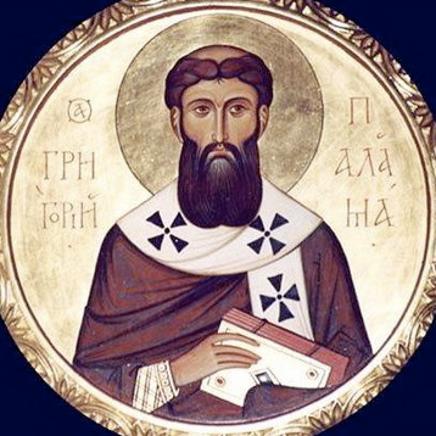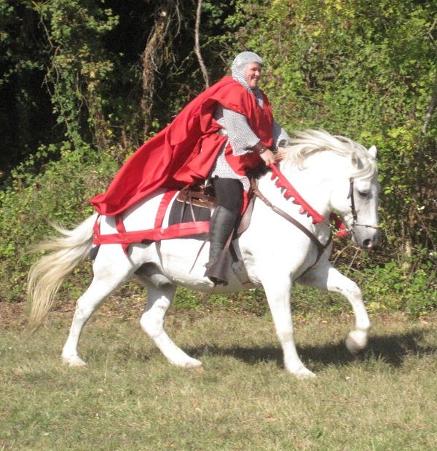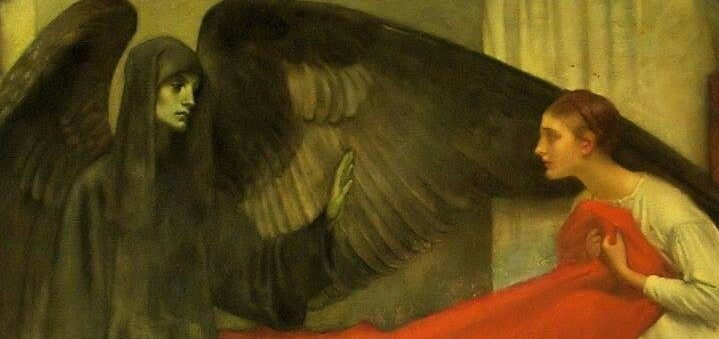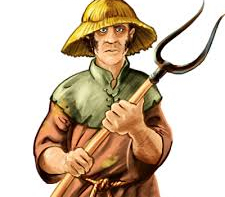Learning and Scripture are husband and wife. They welcome The Deamer and start off with a straight answer to his question. Do-Well is simple belief in the Christian doctrine without too much questioning or searching for proof. Do-Better is to live out Christian teaching in practice. Do-Best is to promote Christian behaviour, reproving others if necessary, but only if you yourself are without guilt.
Scripture elaborates this summary with comments praising simple faith as opposed to intellectual proof. His argument (repeated may times in VPP) is that clever priests and scholars have no proof anyway and that their arguments only confuse the common people. The very word faith implies the absence of proof, and the text here includes a quote from St.Gregory'
"Faith has no merit where demands are made For positive proof from people's past."
The unspoken logic is that religion should promote right behaviour and that it has a better chance of doing so if it is direct, stable and authoritative.
Worldly priests are again criticised and a strange simile likens monks outside monasteries to fish out of water.
"When fresh water fails and the flood recedes, The fish are left dry and die of drought. Like monks and friars who fancy their freedom And wander away from the cloister walls."
But these errant monks don't die, in Langland's view, but turn the situation to their advantage.
"But now religion is a rider and a roamer on highways, A leader of lovedays and a land-buyer, A pricker on a palfry from manor to manor, With the hounds behind him, as if he were noble."
Scripture and The Dreamer get into an argument about salvation when Scripture says,
"Money and monarchy and knighthood are millstones, Not helping by a hair's breadth admission to heaven."
Scripture says that the rich can only get in by remission and mercy while the poor can get in by right. The Dreamer does not like this at all and claims that he will be OK because he was baptised. That it is not enough on it's own, claims Scripture. It will work for death-bed conversions, but ordinary 'official' Christians must do a bit more by living as Christ taught. The Dreamer disputes the paramount need for good works (despite his search for Do-Well), claiming that plenty of good people have never made it into Heaven. He asks why he should rely on good works when such people are:
"....for their works and wit...walled up in hell."
Langland debates the discrepancy between who is saved according to scripture and who should be saved according to common sense. About Noah's ark he says;
"When he built his boat of boards and timber, No wright was saved who worked on it nor any of the labourers."
And none of the old testament prophets got in, but were condemned to "lie with Lucifer many long ages." King David got in despite murdering Uriah the Hittite and the repentant thief on the cross got in while John-the-Baptist never made it. Langland also offers this eternal piece of logic.
"If the world were all black, how would we know white, or a good man save for the scoundrels and sinners?"
Thinkers of those days were very concerned about the plight of "The righteous heathen" for whom scripture made no provision. Langland gets over the problem by saying that only God knows the truth about each man.
Highly praised as a means of getting into heaven is the simple faith of poor, uneducated folk. It is contrasted with the over-educated conceit shown by "cunning clerks who construe many volumes."
"...plowmen and peasants and poor common labourers, Shoemen and shepherds and such simple peasants Pierce with a pater noster the palace of heaven."
Scripture rebukes the Dreamer for his argumentative behaviour and carries on preaching theology for more than a hundred lines. Then suddenly, there follows a dream-within-a-dream that describes a period of riotous living that may or may not have actually happened.
"A delightful dream took hold upon me. I was wafted away; fortune fetched me And led me alone into the land of longing."
The allegorical characters have names like Lust-of-the-flesh and counsel him to banish fear of the future, saying;
"...You are young and eager and have years a-plenty To live long and to love ladies."
Opposition is offered by Old Age, promising the usual ailments;
"But Lovely-to-look-at lent me comfort
And followed me faithfully for forty-five years.
I did not dwell on Do-Better or Do-Well,
Not troubling to pay them token attention.
For Lovely-to-look-at was more in my mind
In my daily round than doing good deeds."
Renewed attack by Old Age leads into thoughts of death, and the greed of friars who want money to have a body buried in their friary.
Suddenly The Dreamer is confronted by a new character, Loyalty (or Fidelity) and a passage is devoted to whether it is right or wrong to expose evil-doing (such as the greed of the Friars) in writing. The long-winded answer is that it all depends on circumstances.





